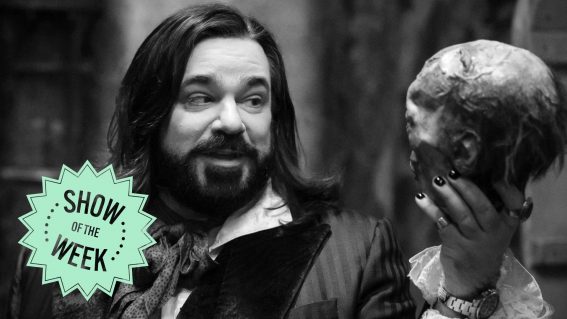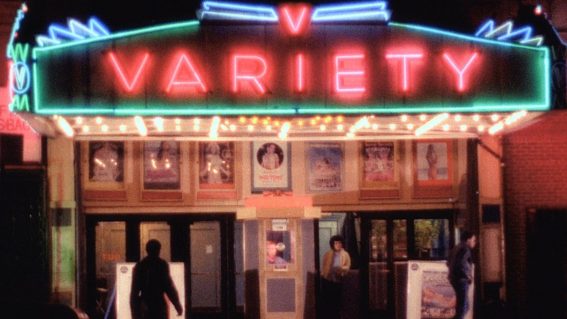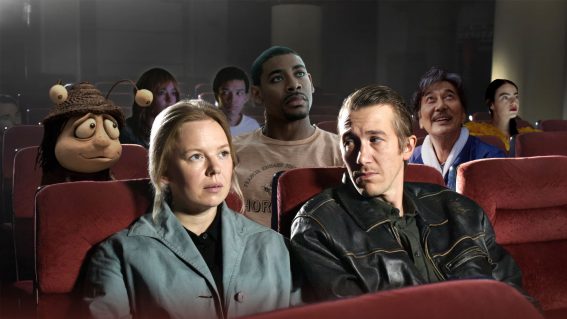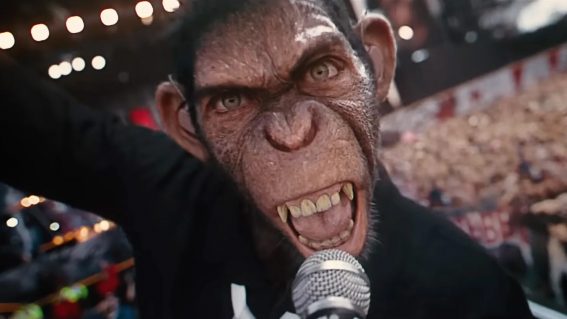Red Rose and 4 more scary movies and shows about online identity
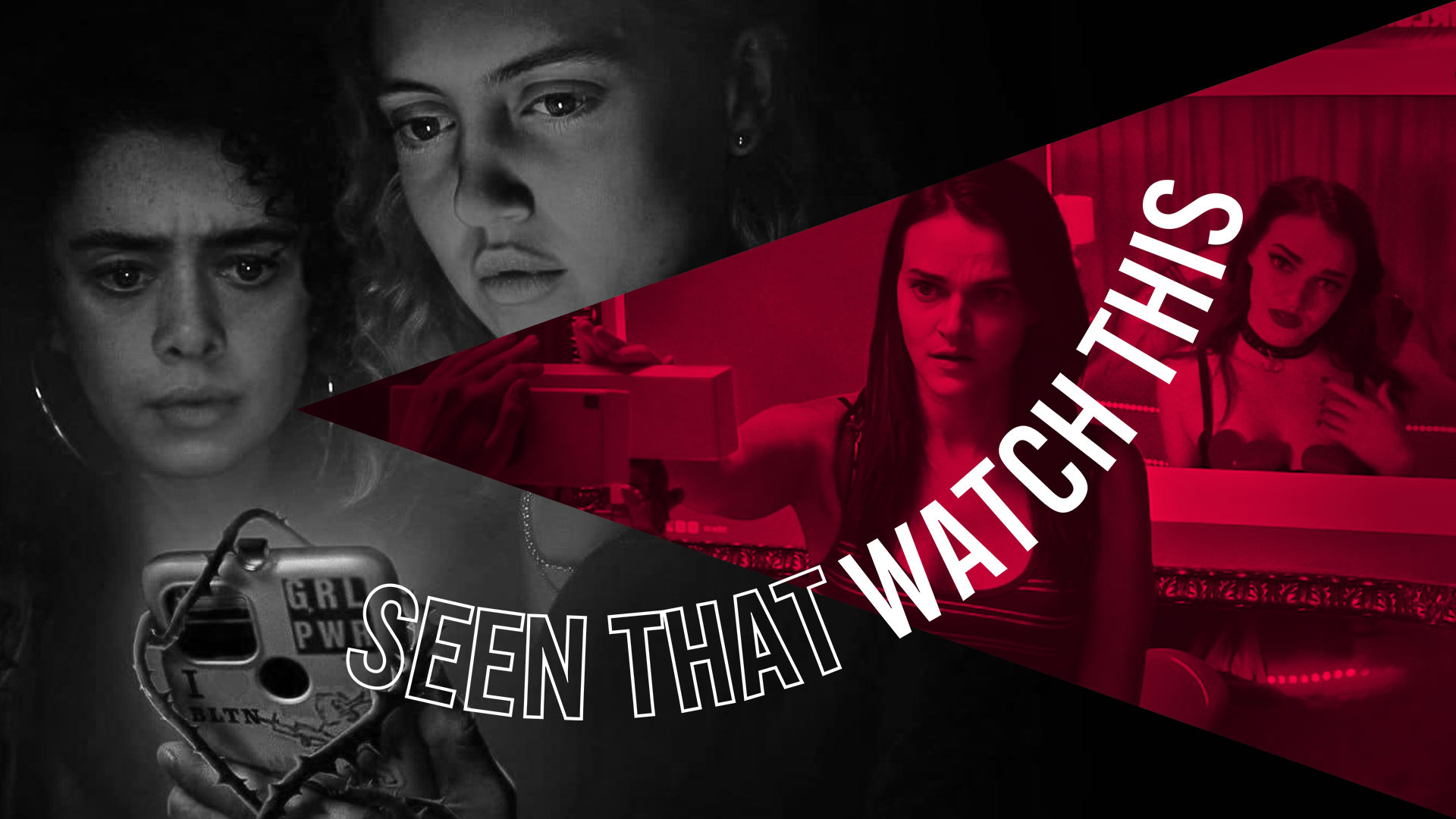
Seen That? Watch This is a weekly column from critic Luke Buckmaster, taking a new release and matching it to comparable works. This week, it’s Netflix’s teen horror series Red Rose and four more bone-chilling productions revolving around online identity.
The terrors of internet existence offer endless opportunities for storytellers to scare the bejesus out of us—with tales of possessed programs, scamming hackers, ghost-like virtual creations and all kinds of other online jiggery-pokery. In Netflix’s popular teen horror series Red Rose, a group of high school students download an app that promises them a better life and, well, big mistake. The question of what’s really haunting them (a person, an algorithm, a malevolent spirit…?) is eventually revealed in a show that sidesteps expectations and, as I wrote in my critique, does a fine job “balancing the catharsis of plot reveals with the tension of not knowing.”
Red Rose is the latest in a genre that, in order to conjure cutting edge creepiness, must keep evolving along with our ever-evolving digital ecosystems. Core to the experience is the notion of online identity, including the horror of losing control over our virtual selves. In a world where our virtual selves are everywhere—and our smelly old physical self is only ever in one location—that can be indeed be very scary. Below are four other gripping productions (two TV shows and two films) that take the subject of thwarted online identities to darkly compelling places.
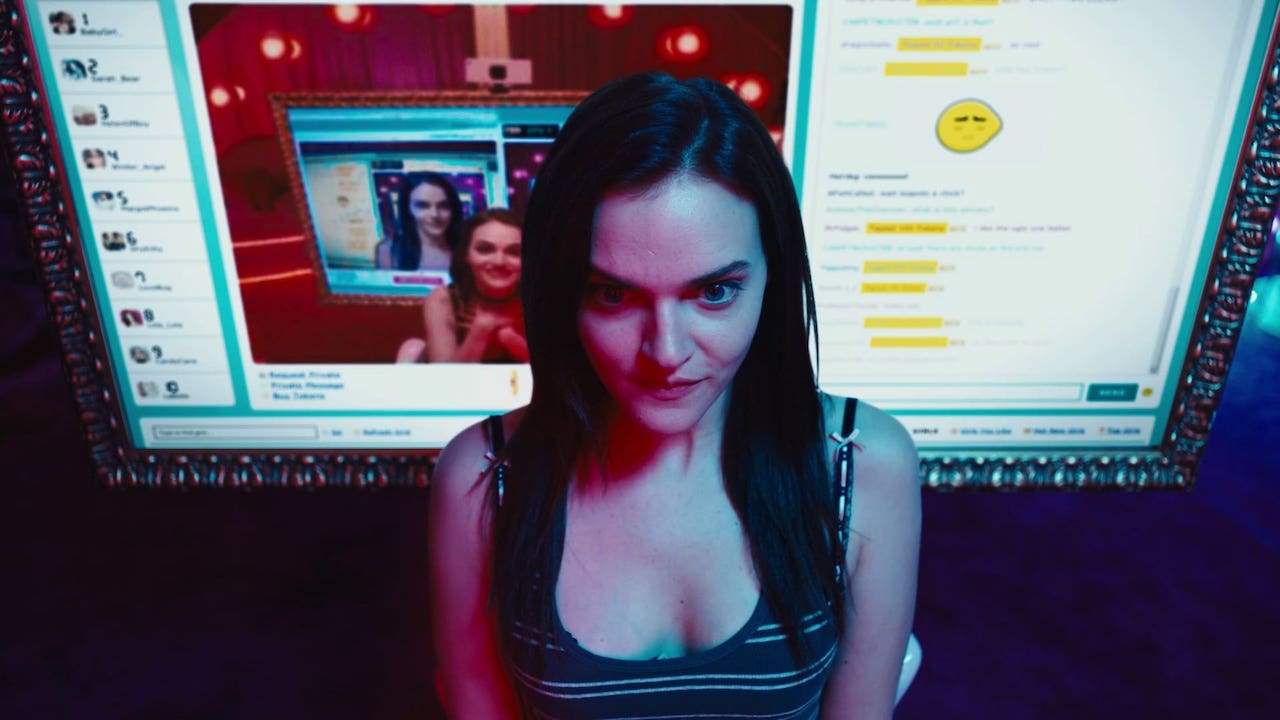
Cam (2018)
The concept of doppelgängers has existed since time immemorial, repackaged in virtual form by director Daniel Goldhaber in his twitchy and shockingly good feature debut about a camgirl—Madeline Brewer’s Alice—who has her identity stolen by a virtual presence that looks, sounds, strips just like her. Obsessed with climbing the ladder of the camgirl site she works for, which she achieves by performing grotesque stunts, Alice enters existential crisis when her autonomy, her shtick, her online self is ripped away. She isn’t in the mood to sit down and contemplate one of the film’s underlying questions: about the difference between online and actual selves.
Goldhaber creates a kind of angsty, inception-like visuality, blending screens, browser windows, and windows within windows. He uses commonplace digital imagery to evoke suspense—an emoji or notification here; a blinking cursor there. The finale is a doozie, with Alice desperately using the one thing her virtual mirror can’t replicate: her physical body.
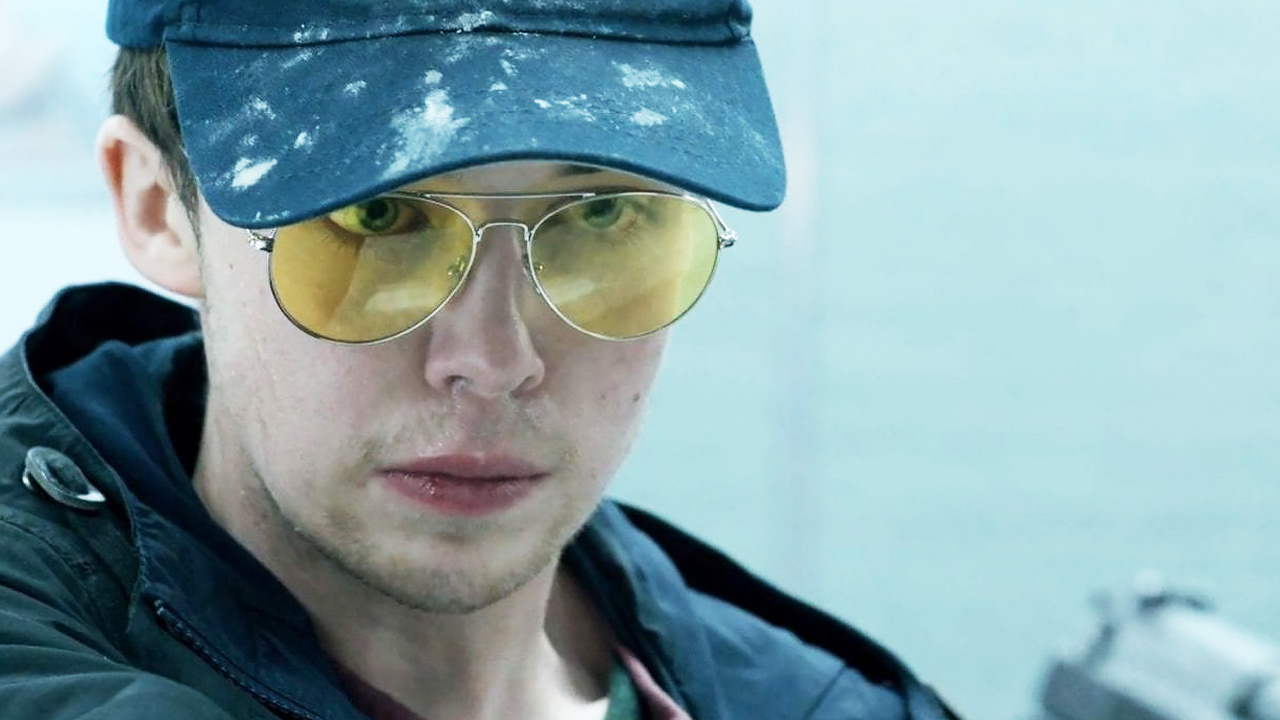
Black Mirror: Shut Up and Dance (2016)
Black Mirror: Season 3
British anthology series Black Mirror delivered a particularly Red Rose-esque tale in this episode (season three, episode three) about a teenage boy, Kenny (Alex Lawther), blackmailed into doing horrible things by an app he downloads, thinking it’s going to remove malware. An early close-up shot lingers on his webcam then zooms into it, as if to say: “this thing is watching you.” A disquieting feeling metastasizes into next-level horror when Kenny learns he’s been filmed masturbating, and is “activated” by the program’s unseen commanders.
Director James Watkins deploys a sharply constructed plotline with staccato rhythm, one incident triggering another, the tempo bam-bam-bam. Kenny must pick up a particular package, for instance, then deliver it to a precise location, then follow another instruction. Before we know it, he’s wavering a gun around like a maniac, crazy-eyed and desperate, longing for the whole thing to go away. It won’t.
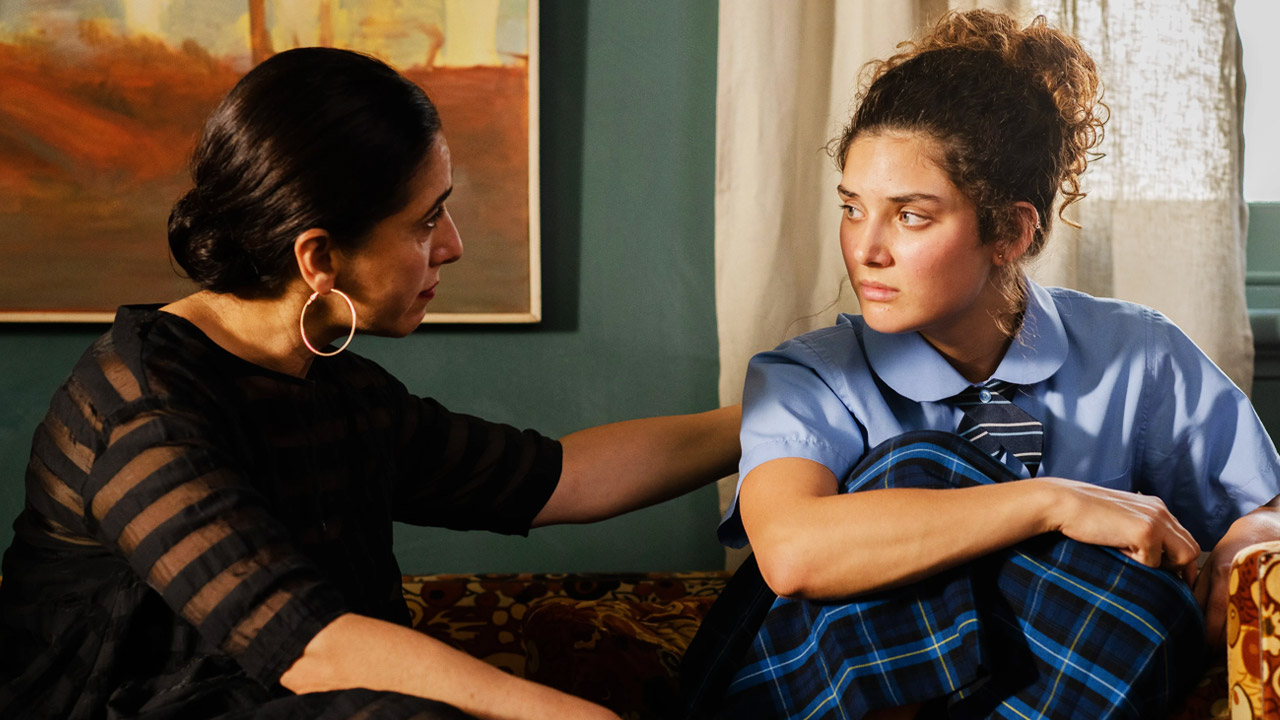
The Hunting (2019)
It’d be entirely reasonable to summarize the message of this tense and skilfully orchestrated four-part series from creators Sophie Hyde and Matthew Cormack as: sexting is dangerous and stupid, so don’t do it. But the drama is far from simplistic and doesn’t come across as prudish or lecturing. The filmmakers build a prickly, electrifying energy, triggered by dual MacGuffins from its two core plotlines, both involving high school students. In one, a compromising picture is captured of Zoe (Luca Sardelis) during a video conversation with fellow student Andy (Alex Cusack); in the other, Amandip (Kavitha Anandasivam) takes a nude photograph of herself and sends it to Nassim (Yazeed Daher), a boy she fancies.
When these images are distributed on a misogyny-filled website, the temperature of the drama rises and the young women find themselves in nightmare scenarios. Intense situations are exacerbated by characters (brought to life with stressfully convincing performances) who make hot-tempered decisions they believe are morally justified. The writing is nuanced and multifaceted.
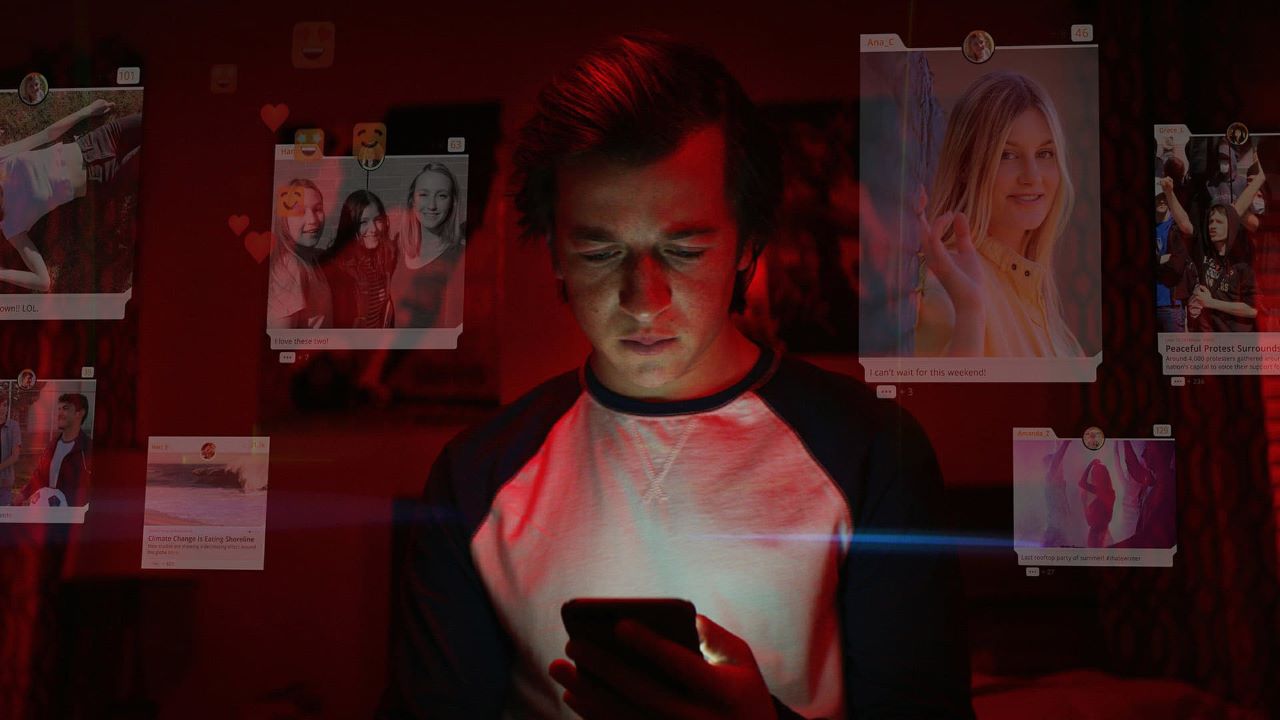
The Social Dilemma (2020)
So, what’s the worst thing social media could do? End human existence! One of the cut-through messages of Jeff Orlowski’s bone-chilling documentary is that online echo chambers and the platforms enabling them disrupt the flow of knowledge and reason so dramatically they pose an existential threat. This is explored towards the end, triggered by conversations around the collapse of consensus reality and ideological perversions distorting conversations around the climate crisis, the Capitol Hill insurrection, fake news, the very nature of truth. Online identity is central to this discussion, social media platforms engineered to reflect the worldviews of each user—leading to a kind of alternate reality, backed by algorithms designed to keep them coming back for more.
Another telling moment occurs at the very beginning of the doco, when its’ talking head experts are asked to define the problem of social media. They swallow and respond with the likes of “um”, “ah”, and “well.” There are lots of complex problems, as the film reminds us, which are difficult to put into words. This is one of the reasons online identity is a subject so ripe for interesting drama: it lends itself to a wide range of narrative possibilities—many of them rather unpleasant.










